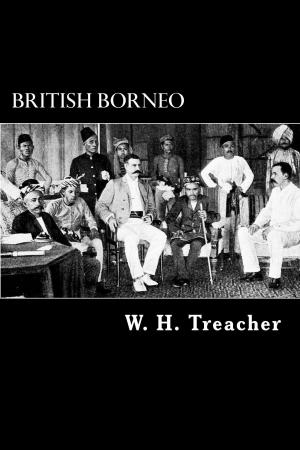The Improvement of Human Reason
Nonfiction, History, Civilization, Science & Nature, Science, Other Sciences, Philosophy & Social Aspects, Middle East| Author: | Ibn Tufail | ISBN: | 1230000099575 |
| Publisher: | Herne Ridge Ltd. | Publication: | January 15, 2013 |
| Imprint: | Language: | English |
| Author: | Ibn Tufail |
| ISBN: | 1230000099575 |
| Publisher: | Herne Ridge Ltd. |
| Publication: | January 15, 2013 |
| Imprint: | |
| Language: | English |
Hayy ibn Yaqzan ("Alive, son of Awake"; Latin: Philosophus Autodidactus "The Self-Taught Philosopher"; English: The Improvement of Human Reason) was the first Arabic novel and the first philosophical novel, written by Ibn Tufail (also known as Aben Tofail or Ebn Tophail), a Moorish philosopher and physician, in early 12th century Spain. The novel was itself named after an earlier Arabic allegorical tale and philosophical romance of the same name, written by Avicenna in early 11th century, though they both had different stories.
Ibn Tufail (circa 1105 – 1185) (full Arabic name: Abu Bakr Muhammad ibn Abd al-Malik ibn Muhammad ibn Tufail al-Qaisi al-Andalusi; Latinized form: Abubacer Aben Tofail; Anglicized form: Abubekar or Abu Jaafar Ebn Tophail) was an Andalusian polymath: a writer, novelist, Islamic philosopher, theologian, physician, vizier, and court official.
As a philosopher and novelist, he is most famous for writing the first philosophical novel, Hayy ibn Yaqdhan, also known as Philosophus Autodidactus in the Western world.
Hayy ibn Yaqzan ("Alive, son of Awake"; Latin: Philosophus Autodidactus "The Self-Taught Philosopher"; English: The Improvement of Human Reason) was the first Arabic novel and the first philosophical novel, written by Ibn Tufail (also known as Aben Tofail or Ebn Tophail), a Moorish philosopher and physician, in early 12th century Spain. The novel was itself named after an earlier Arabic allegorical tale and philosophical romance of the same name, written by Avicenna in early 11th century, though they both had different stories.
Ibn Tufail (circa 1105 – 1185) (full Arabic name: Abu Bakr Muhammad ibn Abd al-Malik ibn Muhammad ibn Tufail al-Qaisi al-Andalusi; Latinized form: Abubacer Aben Tofail; Anglicized form: Abubekar or Abu Jaafar Ebn Tophail) was an Andalusian polymath: a writer, novelist, Islamic philosopher, theologian, physician, vizier, and court official.
As a philosopher and novelist, he is most famous for writing the first philosophical novel, Hayy ibn Yaqdhan, also known as Philosophus Autodidactus in the Western world.















